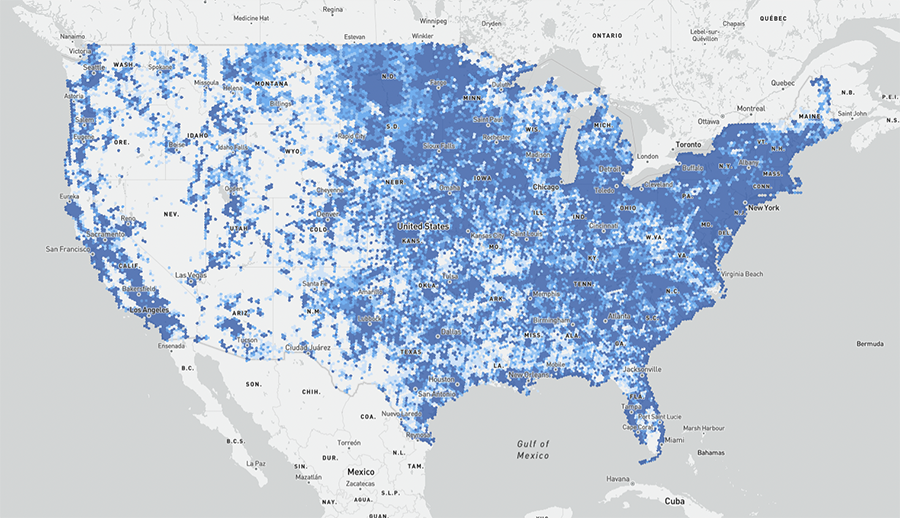High speed internet is one step closer for unserved parts of West Virginia with new maps just released by the Federal Communications Commission (FCC).
During a briefing with West Virginia reporters, Sen. Joe Manchin, D-W.Va., announced the release of the updated broadband maps for the entire country. He said the first round of maps came out last November, but were quickly challenged.
In response, the Federal Communications Commission changed how it determined the presence of broadband in an area — switching from census tracts to individual homes and businesses.
In an online statement, Susan Rosenworcel, the FCC chairwoman, said the new maps “identified every household and small business in the country that should have access to high-speed internet service. For context on how much more granular this is than what came before, in our current mapping effort the Commission identified over 114 million locations where fixed broadband could be installed compared to data from just 8.1 million census blocks in our prior maps.”
Manchin said the new mapping revealed 86,000 more locations in West Virginia without reliable broadband bringing the number to 271,000.
“There shouldn’t be a person living anywhere in West Virginia that won’t be able to access coverage,” he said. “That’s how big this is.”
Manchin said the change in areas that are unserved places West Virginia in the top 10 states with increased numbers.
“We’ve been saying that because our maps were so flawed. We proved this to them during speed tests,” he said. “They were going to pay out the money a long time ago. We prevented that from going out until we got accurate maps. West Virginia should take care of every little nook and cranny in our state, which is our goal.”
As part of the Infrastructure Investment and Jobs Act, a total of $65 billion will be available to internet service providers to build the access. According to the FCC website, in June the new maps will be released to those service providers so they can begin preparing their bid proposals.
Manchin didn’t say how much money the state will get for broadband, but noted it is much more expensive to build towers and lines in West Virginia than it is in Ohio or Iowa because of the terrain and access to cover the needed areas.






















